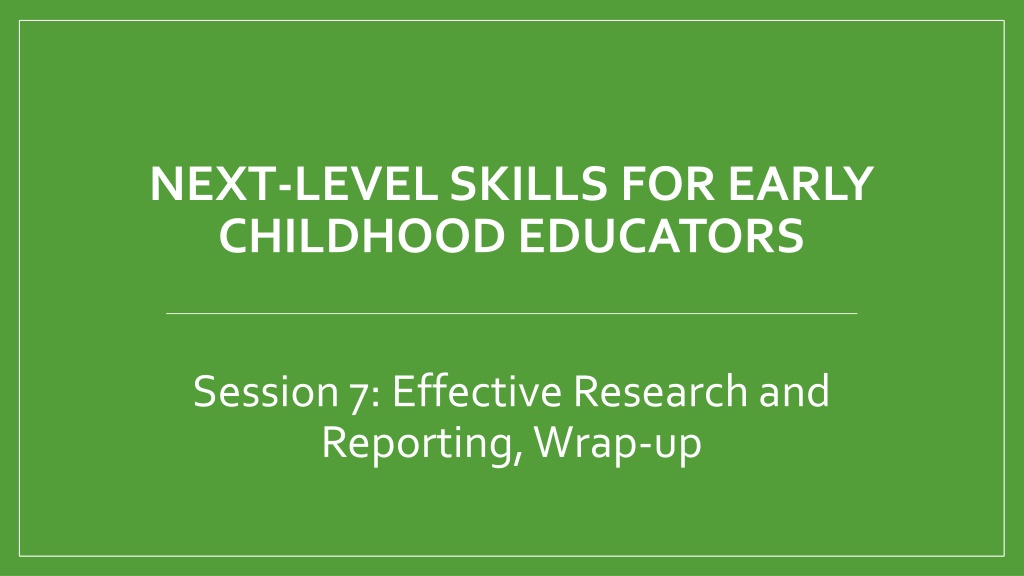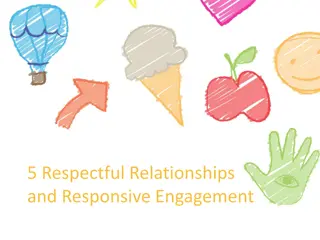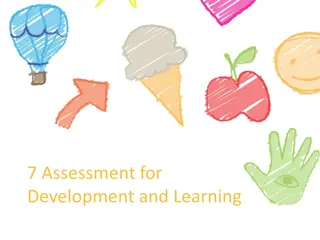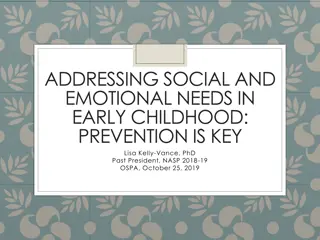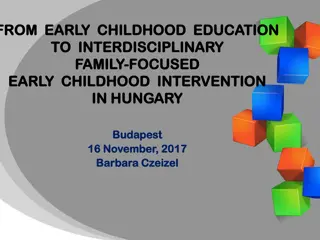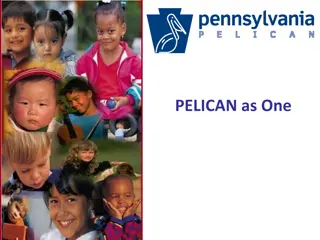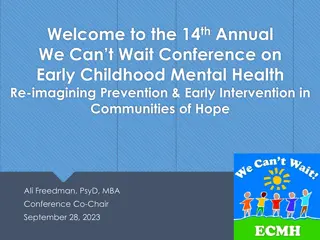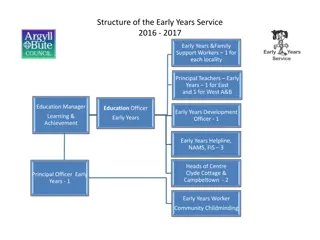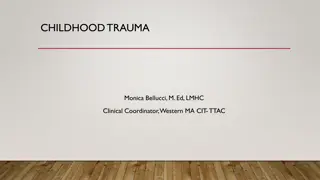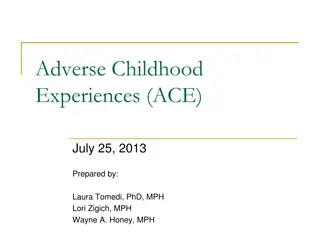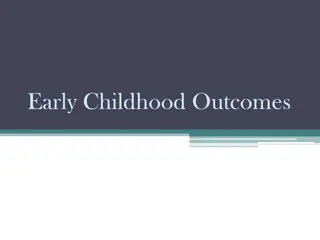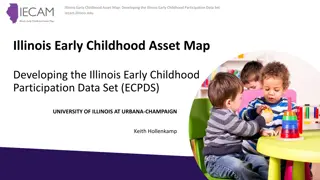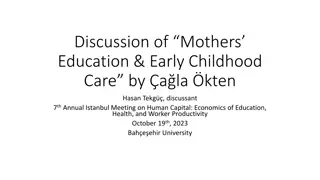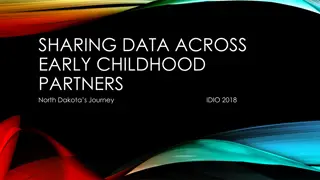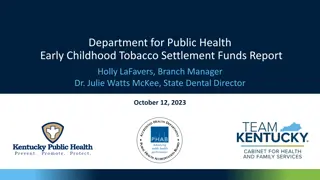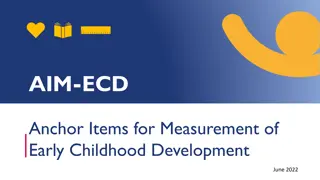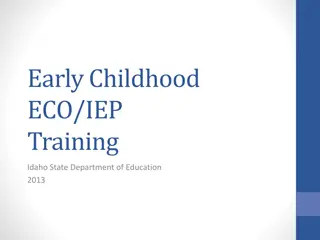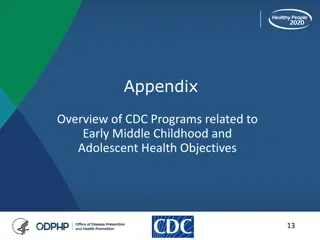Enhancing Early Childhood Research Skills
Explore the importance of effective research in early childhood education, learn to discern legitimate and current information, and discover evidence-based practices. Gain insights on citing sources in APA style and identify reliable websites for research. Engage in activities to apply research skills online, ensuring evidence-based information.
Download Presentation

Please find below an Image/Link to download the presentation.
The content on the website is provided AS IS for your information and personal use only. It may not be sold, licensed, or shared on other websites without obtaining consent from the author. Download presentation by click this link. If you encounter any issues during the download, it is possible that the publisher has removed the file from their server.
E N D
Presentation Transcript
NEXT-LEVEL SKILLS FOR EARLY CHILDHOOD EDUCATORS Session 7: Effective Research and Reporting, Wrap-up
Discussion What are some examples of why you might need to do some research? What are some ways that you would do research? How do you know the information you are finding is legitimate? Current? Reliable? Valid?
APA Citation Examples If you create a document (like a newsletter) you need to cite your sources. In the ECE field we use the American Psychology Association (APA) style. For example: Butcher, K. (2016, September 22). Using evidence-based practice in early childhood education programs. Retrieved from http://msue.anr.msu.edu/news /using_evidence_based_practice_in_early_childhood_education_programs Online resources for APA Citations and Format: http://www.citationmachine.net/apa/cite-a-book http://www.bibme.org/apa
Evidence-Based Practice When we look for and share information we need to make sure we are using information that is evidence-based; it should come from a source that is valid, reliable, factual and current. Practice is what we do, our behaviors and actions. Evidence-based practice means letting our actions be founded on facts, what we have observed, or data. Whether putting together a newsletter or gathering information about a specific topic, we need to make sure that information is evidence-based.
Using Websites for Research Using a website such as the Center on the Social Emotional Foundations for Early Learning (CSEFEL) would be considered evidence-based (they provide information that is based on research). Using Mommy 101 Blog for information would not be evidence-based (it might provide information that is based on one person s experience or opinion). What are some other examples of good, research-based or evidence-based websites? How would you know that a website is sharing facts as opposed to opinions?
List of Online Resources Review the handout List of Evidence-Based Websites. The list includes online resources for information that is: Current Research-based Evidence-based
Activity Choose a topic from the list provided Gather information on this topic from the internet, making sure it is research or evidence-based Cite your source using the APA format
Pulling it All Together We have looked at: Essential Skills in Early Childhood Education Integrating Literacy Professional Writing Techniques Oral/Verbal Communication Skills Soft Skills Technology and Social Media on the Job Effective Research and Reporting
Group Activity: Challenges Respond to an email from an upset parent when the supervisor is not available Write a report on what Johnny (who has had aggressive behaviour in the past) has been doing the last 3 days Write up a summary of the workshop you have attended for your portfolio, and reflect on what you have learned A friend s child has joined your daycare. Reflect on how are you are managing the dual relationship
Activity- Shield of Honour Quadrant 2: What skills and abilities do you need to improve upon in the workplace? Quadrant 1: What skills and abilities do you bring to the workplace? Quadrant 4: What is a source of pride at your workplace? Quadrant 3: What challenges do you experience at your workplace? Posted online by Jordan Chouljian at http://blog.trainerswarehouse.com/icebreakers-to-start-a-soft-skills-session/
In the Future Are there any topics you would like to spend more time on or have more training on in the future?
Acknowledgements: This presentation was designed in 2019 to support Ontario s Early Childhood Educators in further developing the unique communication skills required in their role. It should be used with the accompanying Participant Workbook, and Reflection Journal. Curriculum developed by: Carolyn Little and Helen Krygsman Editing and design support by: Summer Burton Support for this project was provided by: Organizations are encouraged to copy and use these materials; however, reproducing or reselling these materials for profit is prohibited. If you have questions about this curriculum, we invite you to contact Literacy Link South Central at 519-681-7307 or literacylink@llsc.on.ca
